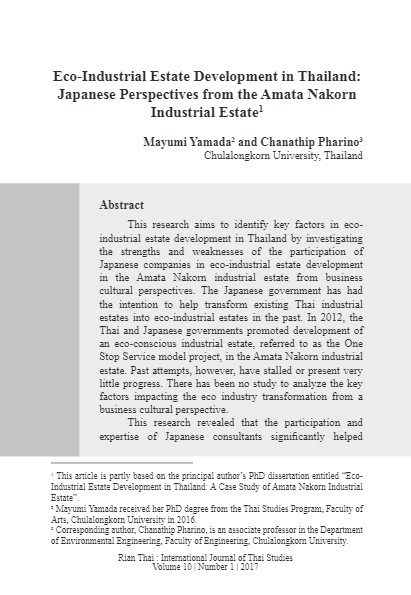Mayumi Yamada and Chanathip Pharino
Abstract
This research aims to identify key factors in ecoindustrial estate development in Thailand by investigating the strengths and weaknesses of the participation of Japanese companies in eco-industrial estate development in the Amata Nakorn industrial estate from business cultural perspectives. The Japanese government has had the intention to help transform existing Thai industrial estates into eco-industrial estates in the past. In 2012, the Thai and Japanese governments promoted development of an eco-conscious industrial estate, referred to as the One Stop Service model project, in the Amata Nakorn industrial estate. Past attempts, however, have stalled or present very little progress. There has been no study to analyze the key factors impacting the eco industry transformation from a business cultural perspective.
This research revealed that the participation and expertise of Japanese consultants significantly helped build an eco-industrial estate model and strengthen project development and business planning. However, Japanese participation in eco-industrial development faced communication and cultural barriers in business that reduced work efficiency of the project members. Different languages and business cultures are major barriers in working together between Thai and Japanese participants. For future eco-industrial estate development, more efforts to understand Thai society, professional style and business culture are needed for Japanese or foreign investment project members and also improvement of communication skills among other project members is recommended.
(Published in Rian Thai: International Journal of Thai Studies, Volume 10/2017 (Number 1), Page 55-71)
Full Text : Download
